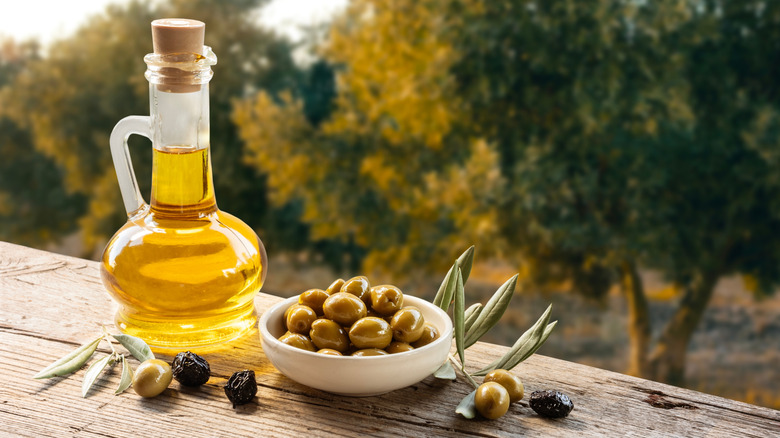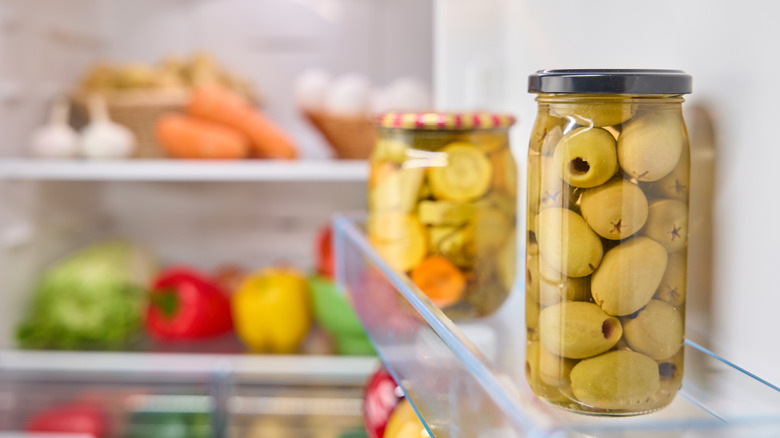Do Olives Go Bad And How Long Should They Last?
Like most fancy things in life, olives need proper maintenance to be able to have the desired effect. In this case, the richest, juiciest, and most fragrant olives are the ones that haven't sat in the fridge for years like a trophy. When in their best condition, the versatility of olives makes them a welcomed addition to most dishes. From experimenting with spicy cheese-stuffed fried olives to whipping up a rosemary and olive frittata dish, there is good reason to have a stash of olives nearby. To confidently incorporate olives into your meals, you'll need to first get to grips with how to preserve them.
Despite their long shelf life, olives can and do go bad. The reasons range from how they are packaged to how they are stored once taken home. The good thing about this popular stone fruit is that when jarred, the salty brine solution acts as a preservation hack as well as a flavor-enhancer. Unopened jars of olives will remain fresh for about two years outside of your refrigerator. Once opened, you're best to store them in the refrigerator (somewhere you won't forget about them) for 12 to 18 months. If you're all about selecting your olives from the olive bar though, you will need to eat them within three days of purchase.
How to store olives for long-lasting freshness
For guaranteed freshness, keep unopened liquid-packed olives in a cool and dark place in your kitchen, like the pantry or a cabinet. Temperature control is super important to get right too. Unopened jars of olives are best stored at room temperature, not reaching above 75 degrees Fahrenheit. Once opened, olive jar lids should be tightly resealed to keep them safe from exposure to oxygen (big spoiler alert) before being placed in the refrigerator. For dry olive lovers, storing them in the refrigerator in an airtight container is the best way to keep them fresh. It is also useful to keep in mind that the 'use by date' on the side of your jar of olives is more of an indicator of quality rather than safety, according to the USDA. For extra longevity though, freezing olives is an option too. Keep olives liquid or brine-free and place them in an airtight, freezer safe container for up to six monthsand remember to lay them flat in the freezer.
However you choose to store your olives, it's important to know how to spot olives that can't be saved. Looking out for signs of mold, discoloration, or an off-putting odor will help protect you from ruining your dish with spoiled olives. Another way to detect any gone-bad olives is to check for signs of rusting, damage, or leaking from the can or jar plus signs that the jar is about to 'bulge' open. It's best to discard of these olives right away and find some that live up to their delicious reputation.


